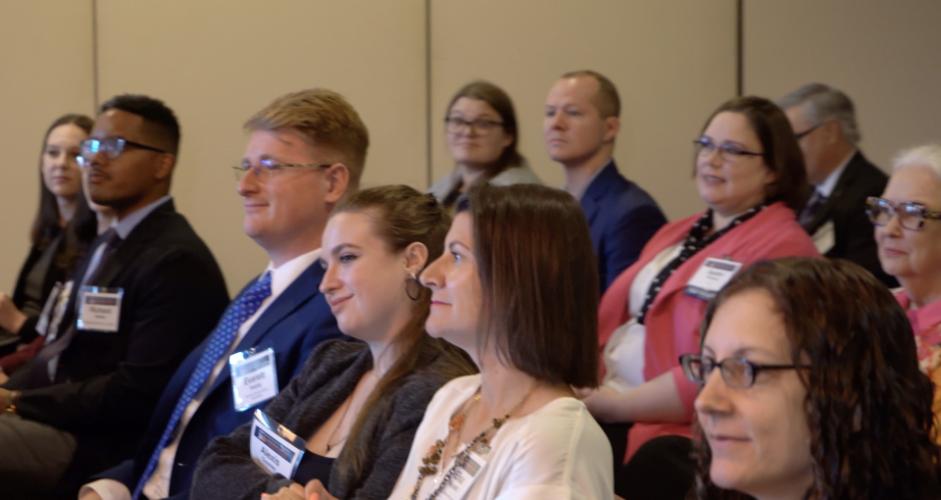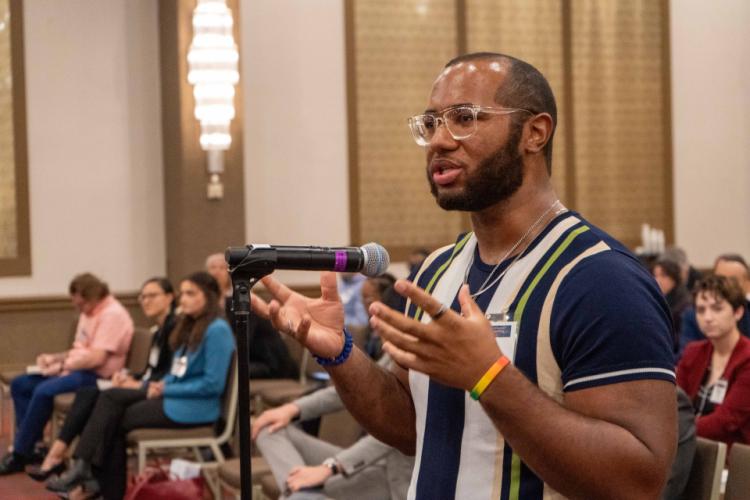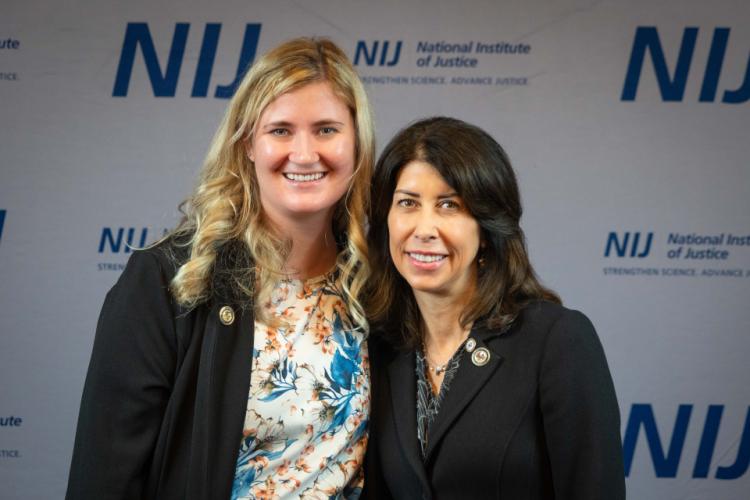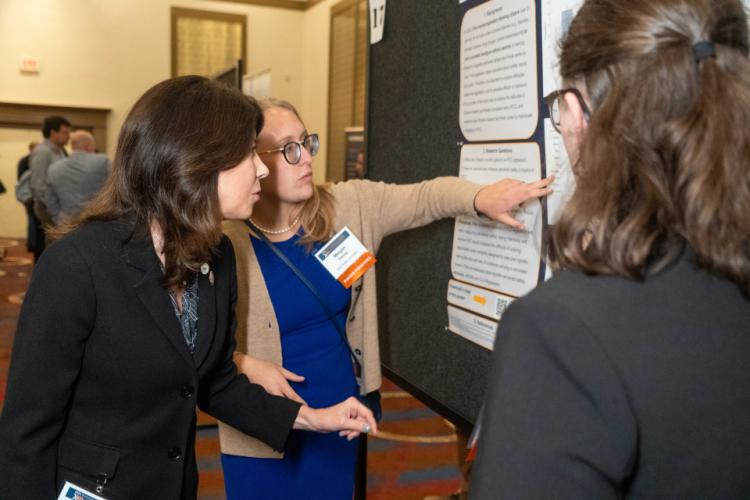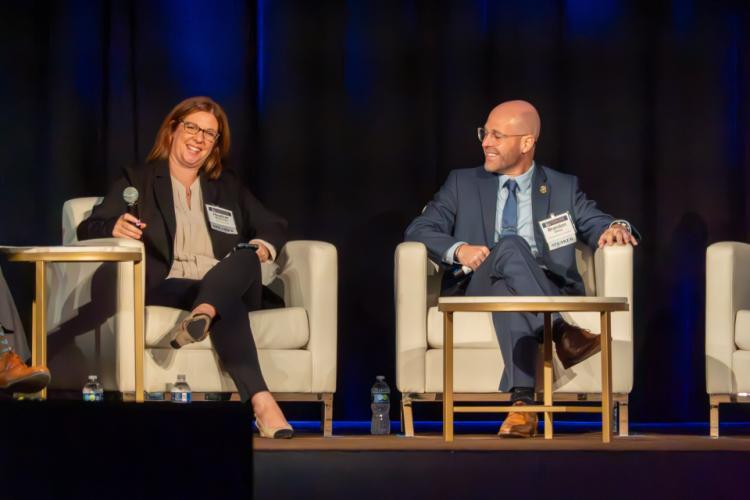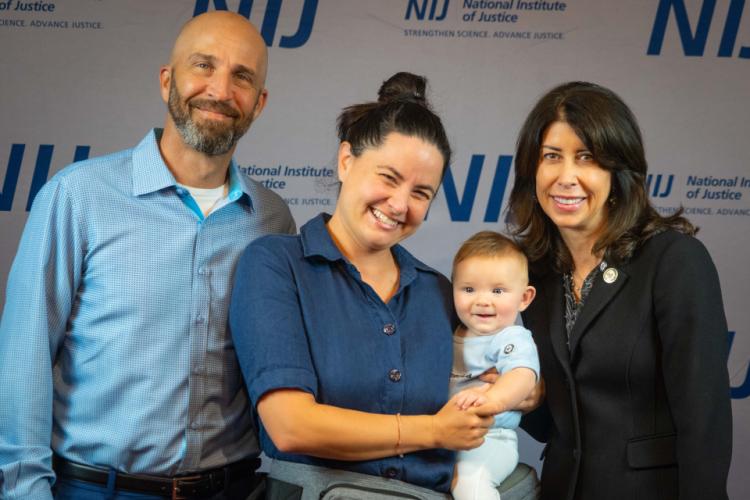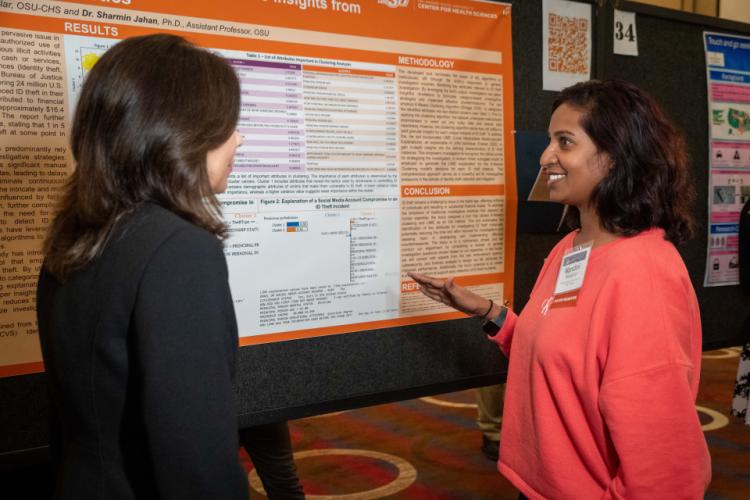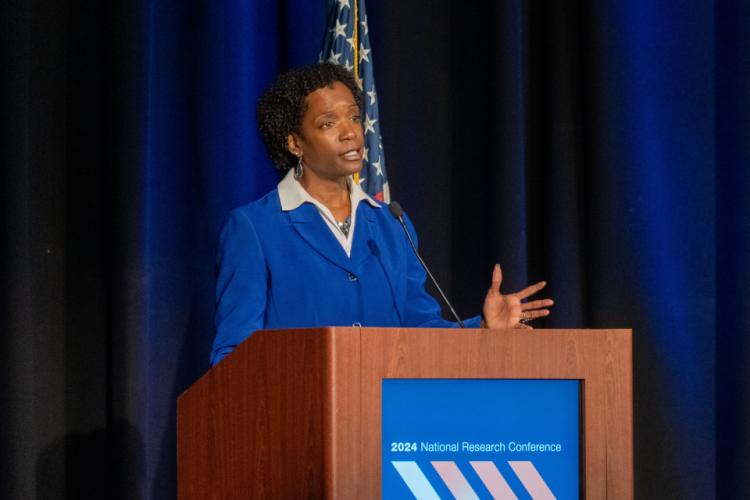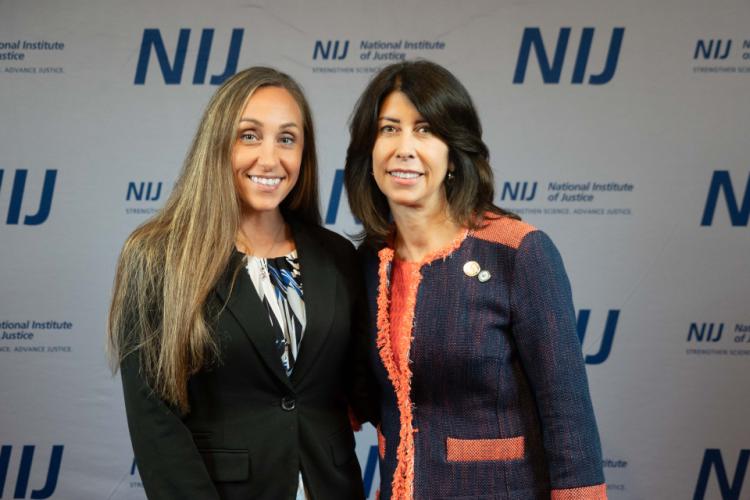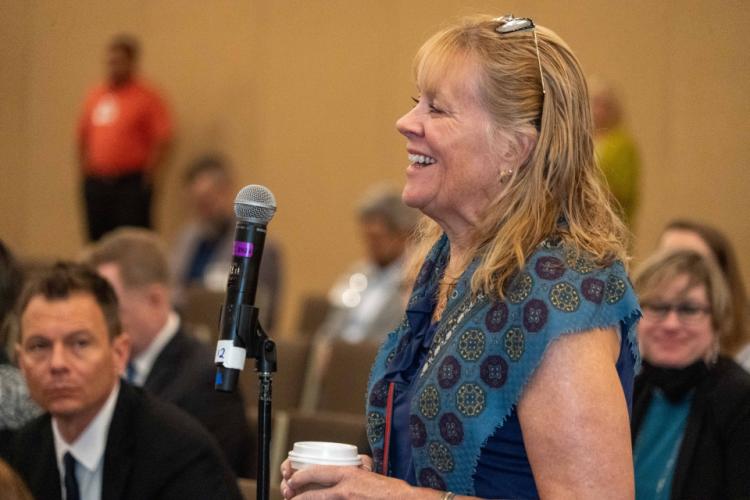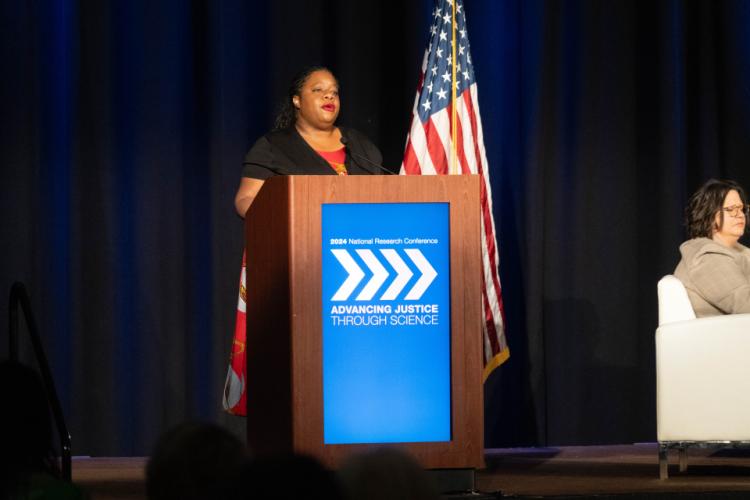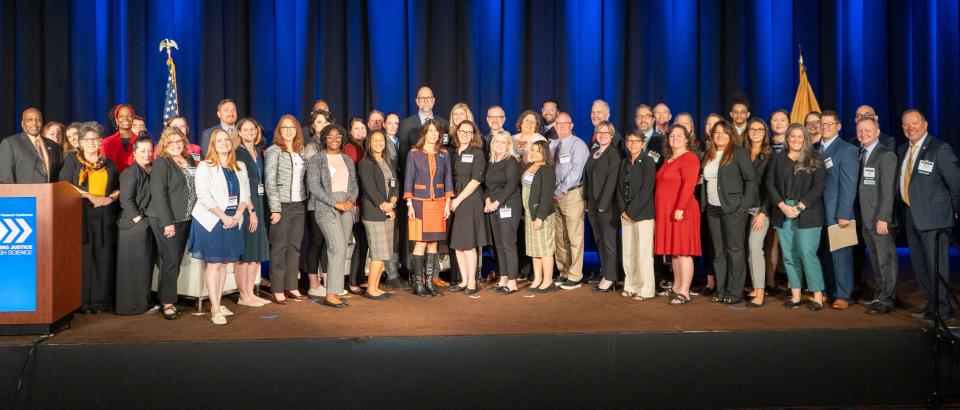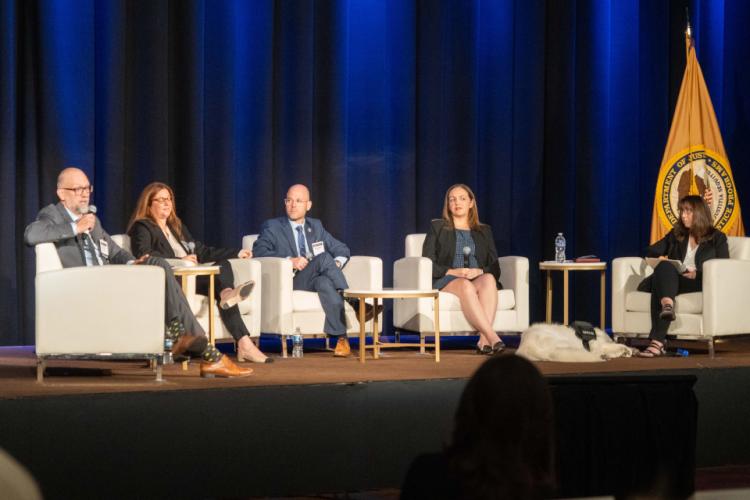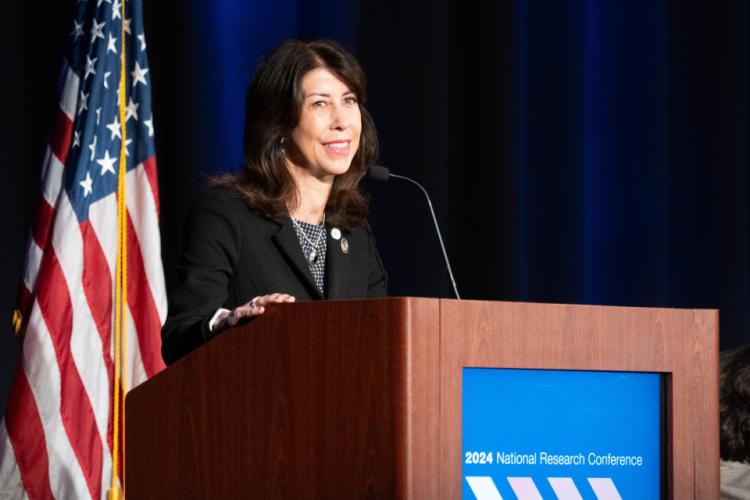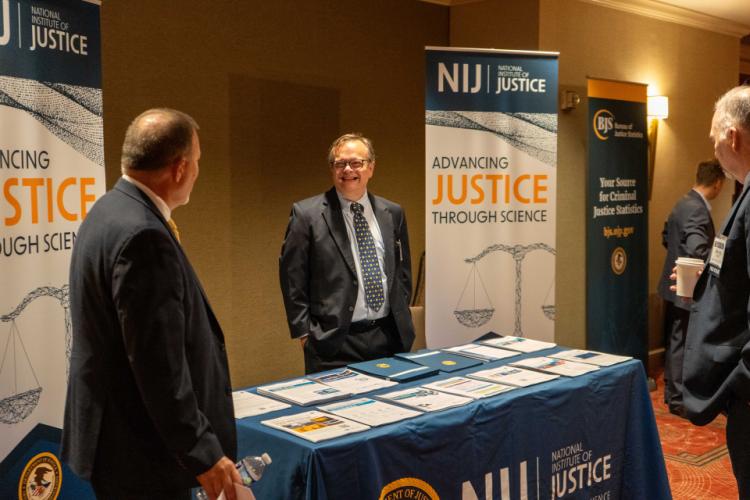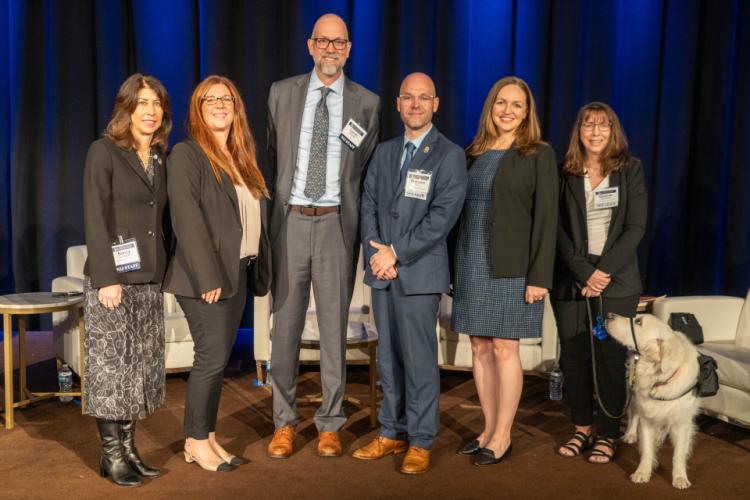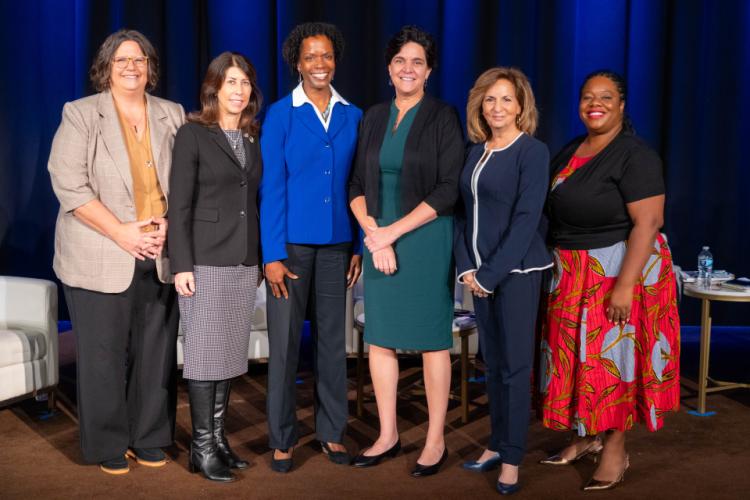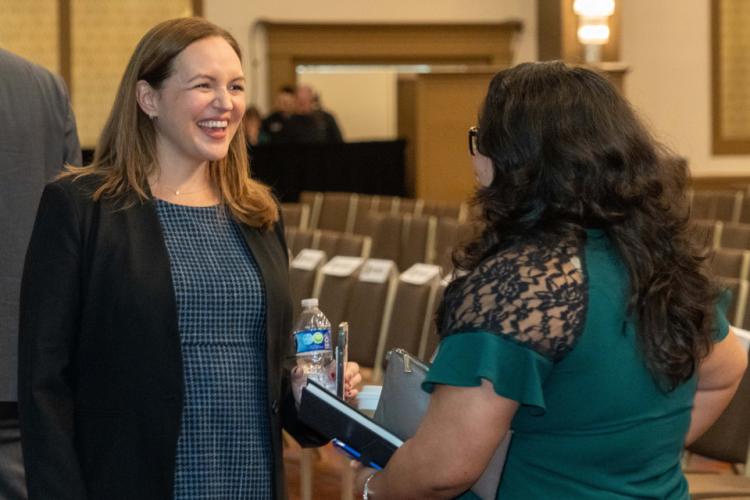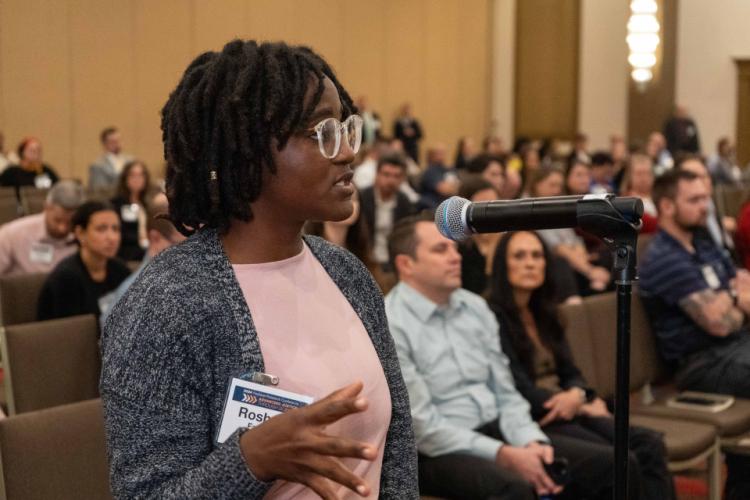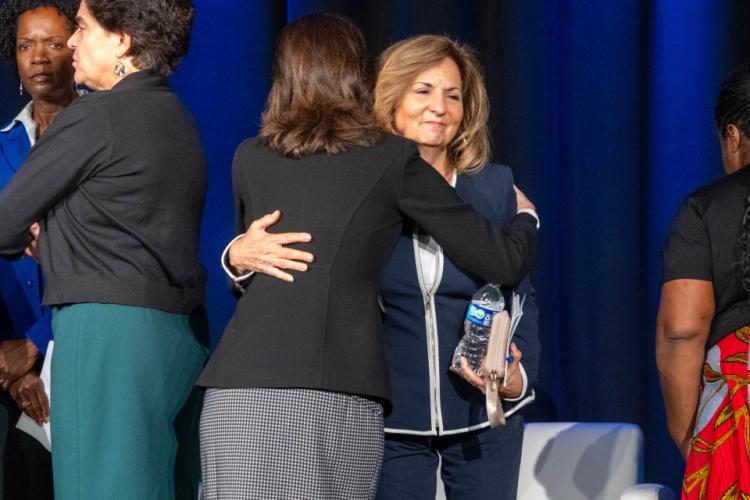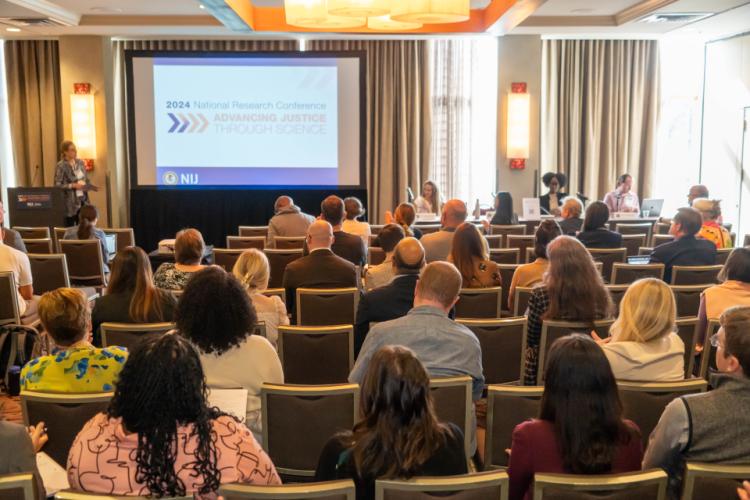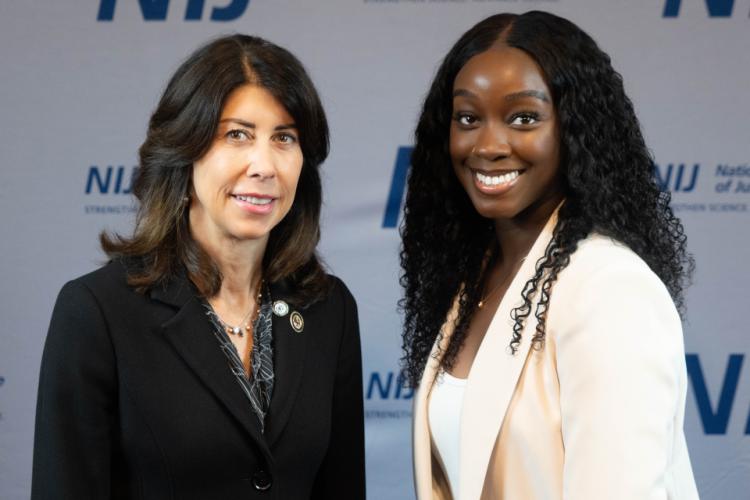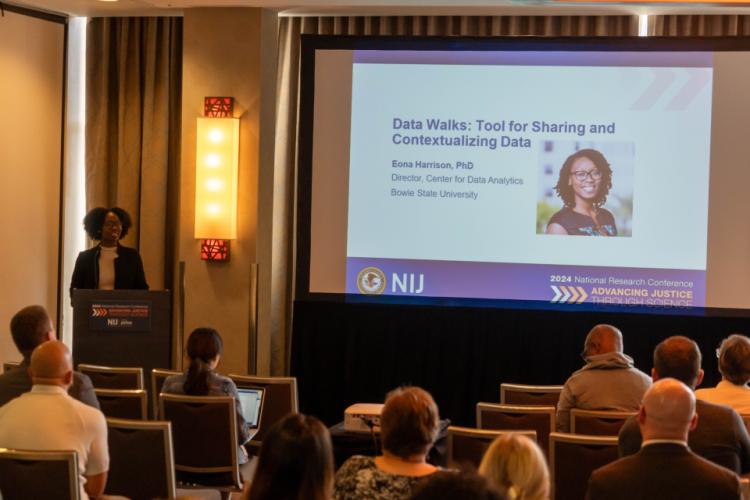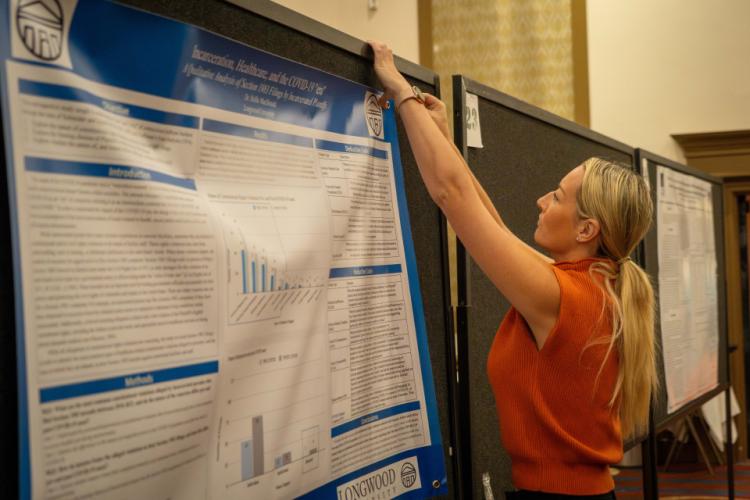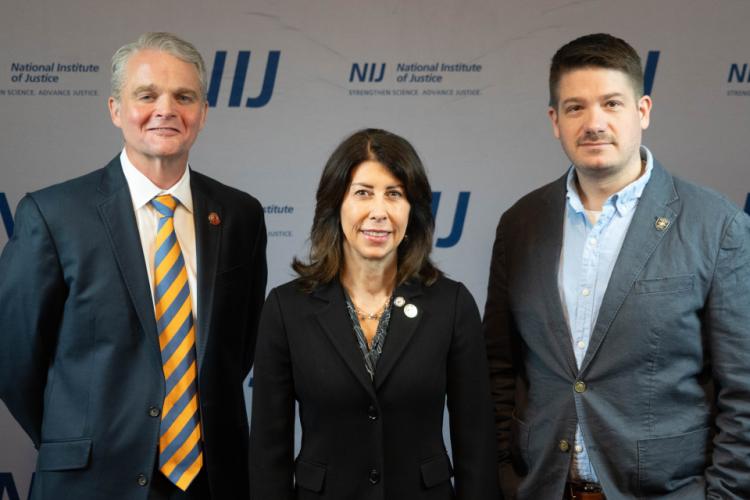Thank You and Follow-Ups
A huge thank you to everyone who attended the conference or watched the live-streamed events. We are both energized and exhausted and hope you found the panels and plenaries as exciting and informative as we did.
30 Years of the Violence Against Women Act: Endurance, Expansion, and the Next Era
Advancing Justice for the Missing and Unidentified Through Research
Forthcoming -
- Celebrating 10 Years of NIJ’s Law Enforcement Advancing Data and Science (LEADS) Scholars Program
- Advancing Justice Through Science: Tracing Allegheny County’s Journey
See the YouTube Terms of Service and Google Privacy Policy
See the YouTube Terms of Service and Google Privacy Policy
See the YouTube Terms of Service and Google Privacy Policy
Building on the success of our 2023 conference in Arlington, Virginia, the theme of our 2024 Research Conference was advancing justice through science. The 2024 conference took place September 16-18, 2024, in Pittsburgh, Pennsylvania. Our goal was to bring researchers, practitioners, and policymakers together to discuss the latest research evidence and how it can be implemented to promote safety and justice for all.
We invited researchers, grantees, practitioners, policymakers, graduate students, advocates, the general public — anyone interested in mobilizing NIJ’s resources. This convening also offered guidance on equitable and community-engaged research design. It is the collaborative partnerships between us all that yield the strongest research outcomes and results.
Learn more about how the conference addressed issues in the fields of:
NIJ is dedicated to advancing knowledge and tools to help law enforcement agencies deliver services more effectively and efficiently.
Law enforcement attendees at the National Research Conference learned about critical issues and challenges in policing, eradicating police crime and misconduct, policing in schools, celebrating the anniversary of NIJ’s LEADS Scholars program, and emerging public safety strategies.
NIJ’s forensic science mission is to strengthen the quality and practice of forensics through research and development, testing and evaluation, technology, and information exchange.
The upcoming National Research Conference convened leading minds from the forensics community, and the greater criminal justice field, which can reinforce collaboration between government, academic, and industry partners. Forensics practitioners got up to speed on how research and technology can improve public crime lab efficiency and accuracy, support the processing of ballistic evidence, inform child abuse investigations, detect Novel Psychoactive Substances, and advance justice for the missing and unidentified through research and the National Missing and Unidentified Persons System (NamUs) program.
NIJ supports research in and evaluations of many specific types of crime prevention strategies — from gun crime and child abuse to identity theft and human trafficking.
At the National Research Conference, attendees learned about evidence from the evaluation of Project Safe Neighborhoods, tools for assessing community perceptions of public safety, effective strategies for community violence interventions, and efforts to stem gun violence.
NIJ is dedicated to improving knowledge and understanding of crime and justice issues through science. We provide objective and independent knowledge and tools to inform the decision-making of the criminal and juvenile justice communities to reduce crime and advance justice, particularly at the state and local levels.
Attending NIJ’s National Research Conference allowed those interested in innovations in data sources and analytic strategies to improve the juvenile justice system, inform our understanding and reporting of missing person data, build and implement a strong dissemination plan, employ best practices and practical applications for cost analyses, and develop and manage effective research collaborations.
NIJ supports research to advance the field of victims' services, including studies to reduce victimization, evaluate service provision, measure the impact of crime on individuals, their loved ones, and their communities, and improve the criminal justice system response for victims of crime.
The National Research Conference enabled those interested in this field to come together and collaborate across other justice areas to learn about survivor-informed research, dynamic survivor engagement in human trafficking research, tools to improve victim services, how research has informed policy changes to prevent, protect, and service victims of gender-based violence, and research highlights from thirty years of the Violence Against Women Act.



